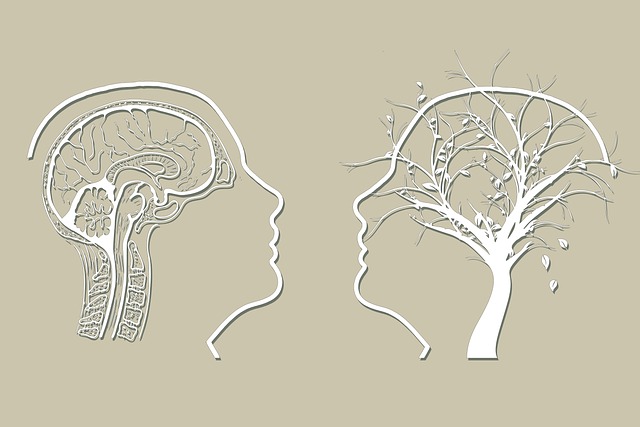Substance abuse among the elderly is a growing concern often overlooked due to misconceptions about addiction in older adults. They face unique challenges like physical health issues, cognitive decline, and social isolation, leading to self-medication with substances. Therapy for Elders plays a critical role by addressing these complexities through effective approaches such as Cognitive Behavioral Therapy (CBT) and Motivational Interviewing. These therapies help seniors understand and heal underlying relationship issues and social isolation, boosting their confidence in adopting healthy self-care practices. By integrating emotional healing processes, therapy enables elders to break free from addiction and foster well-being. Therapy for Elders Relationship Issues is a key component of recovery, focusing on coping with loneliness, loss, or past traumas through CBT and other therapeutic methods. A holistic approach involves tailored therapy, mental health education, and building supportive networks to enhance long-term mental wellness for this demographic.
In addressing substance abuse among the elderly, understanding their unique challenges is crucial. This demographic faces distinct barriers to recovery due to health issues, isolation, and complex relationship dynamics. The article explores effective risk reduction strategies for this vulnerable group, emphasizing a holistic approach.
We delve into the significance of therapy as a powerful tool to address underlying relationship issues prevalent in elderly substance abuse cases. By combining therapy with community support systems, long-term recovery becomes more achievable.
- Understanding Elderly Substance Abuse and Its Unique Challenges
- The Role of Therapy in Addressing Relationship Issues for Elders
- Effective Risk Reduction Strategies: A Holistic Approach
- Support Systems and Community Engagement for Long-Term Recovery
Understanding Elderly Substance Abuse and Its Unique Challenges

Substance abuse among the elderly is a growing concern, often overshadowed by the perception that older adults are less susceptible to addiction. However, this demographic faces unique challenges when it comes to substance misuse, including physical health issues, cognitive decline, and social isolation. Many elderly individuals turn to substances like alcohol or prescription medication as a form of self-medication to cope with chronic pain, depression, or anxiety—a practice that can quickly escalate into dependency.
Therapy for Elders plays a pivotal role in addressing these complex issues. Cognitive Behavioral Therapy (CBT) and Motivational Interviewing are effective approaches that help seniors explore the underlying causes of their substance abuse, such as unhealed relationship wounds from their past or current social isolation. By integrating Emotional Healing Processes, therapists can boost the confidence of elderly clients, encouraging them to embrace healthy self-care practices—a crucial step in breaking free from the cycle of addiction and fostering a sense of well-being.
The Role of Therapy in Addressing Relationship Issues for Elders

For elders grappling with substance abuse, addressing underlying relationship issues through therapy is a crucial step in their recovery journey. Many older individuals turn to substances as a coping mechanism for emotional pain stemming from loneliness, loss, or past traumatic experiences. Therapy provides a safe and non-judgmental space where they can explore these complex emotions and develop healthier coping strategies.
Specific therapeutic approaches, such as cognitive-behavioral therapy (CBT), can help elders process their emotional healing processes, identify negative thought patterns related to relationships, and foster positive thinking. Trauma support services within these therapy sessions enable them to confront and overcome past traumas that may be contributing factors to their substance abuse. By delving into these issues, elders can begin to mend broken relationships and create new, healthier connections, which are vital components of a successful recovery and improved overall well-being.
Effective Risk Reduction Strategies: A Holistic Approach

A comprehensive approach to risk reduction for substance abuse among elders should incorporate various strategies that address both individual and societal factors. Effective risk reduction goes beyond mere abstinence; it’s about fostering holistic well-being. This involves a combination of therapy tailored for elder patients, focusing on issues like relationship problems or trauma support services, which are common in this demographic. By integrating these elements into care plans, we can significantly enhance the chances of successful recovery and long-term mental wellness.
Additionally, Mental Health Education Programs Design should be implemented to empower elders with knowledge about substance abuse prevention. This includes teaching coping mechanisms, stress management techniques, and promoting healthy aging practices that can deter potential users from turning to substances. Such programs not only equip individuals with tools for personal resilience but also contribute to a broader culture of mental health awareness, fostering supportive communities where elders feel understood and valued.
Support Systems and Community Engagement for Long-Term Recovery

Building a robust support system is vital for long-term recovery from substance abuse, especially for elders navigating relationship issues. Therapy for Elders tailored to their unique needs can play a pivotal role in addressing underlying emotional and social factors contributing to their struggle. Incorporating family members, friends, and peers into the treatment process fosters a sense of community, which is essential for sustained sobriety. This communal support network acts as a buffer against potential triggers and provides ongoing encouragement during challenging times.
Cultural sensitivity in mental healthcare practice is crucial when engaging diverse communities. Recognizing and respecting individual cultural backgrounds ensures that recovery strategies are inclusive and effective. Moreover, integrating programs like Mental Wellness Coaching can empower individuals to develop self-esteem improvement skills, enhancing their ability to make positive choices. These initiatives contribute to a holistic approach, addressing not just substance abuse but also promoting overall mental wellness through tailored coaching programs development.
Substance abuse among the elderly presents unique challenges that require a multifaceted approach. By combining understanding, therapy for elder relationship issues, holistic risk reduction strategies, and robust support systems, we can significantly enhance long-term recovery outcomes. Integrating community engagement into these efforts is crucial, fostering an environment that promotes well-being and prevents relapse. Through these comprehensive measures, we can better address the complex needs of elderly individuals struggling with substance abuse.














